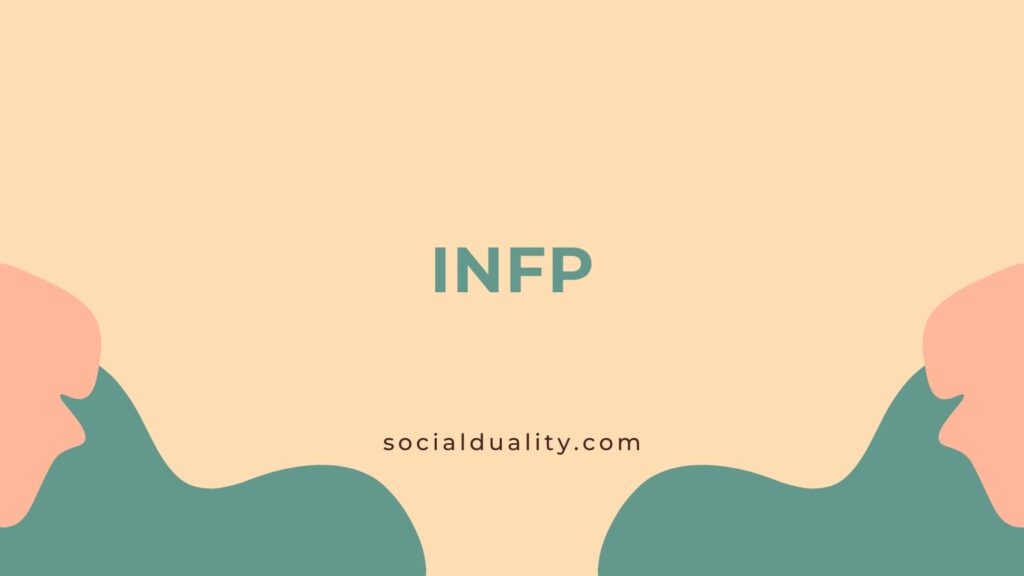INFPs, known as the mediator personality type, are fascinating individuals. They are kind and imaginative. These personality types tend to be quiet and open-minded. They deeply connect with people, nature, and art.
According to the Myers-Briggs theory, INFPs are unique. They are intuitive and deeply in touch with emotions. INFP personalities love forming deep connections. They often feel like they can truly understand others’ feelings.
However, INFP weaknesses include challenges with being too idealistic, which can lead to disappointment. Despite this, their empathy is a major strength. They are often called Mediator because they help resolve conflict. This ability makes INFP personalities valuable in many areas of life.
Key Takeaways
- INFPs are known for their empathy and creativity, making them valuable in many areas.
- They often face challenges with productivity due to introspection and idealism.
- INFPs thrive in roles that allow for self-expression, like writing or counseling.
- They prefer avoiding conflict but can mediate by understanding different perspectives.
- INFPs emphasize personal values and authenticity in relationships and social interactions.
Key Characteristics of INFPs
Exploring the distinct features of INFPs reveals their deep sensitivity and creativity. Their personality type is driven by a strong internal compass, making them empathetic and introspective. Their rich inner world fuels INFP strengths, like their boundless imagination and emotional intelligence. However, managing conflict can challenge them, as they prefer harmony over confrontation. The Myers-Briggs theory categorizes the INFP as a compassionate dreamer, often called a Mediator. This personality type tends to gravitate toward artistic professions, where they can express their values and emotions freely. Ultimately, these people strive for authenticity in all aspects of their lives.

Strengths and Weaknesses of INFPs
Exploring the qualities of INFPs reveals their deep sensitivity and creativity. Their personality type centers on a strong internal compass, making them empathetic and introspective. Their rich inner world fuels INFP strengths, like a boundless imagination and emotional intelligence. Managing conflict can be challenging, as they prefer harmony over confrontation. The Myers-Briggs theory categorizes the INFP as a compassionate dreamer, often called a Mediator. This personality type tends to gravitate toward artistic professions, where they can express their values and emotions freely. Ultimately, these people strive for authenticity in all aspects of their lives.
INFPs in Relationships and Friendships
Experiencing relationships, INFPs cherish deep connections. With their empathy, they understand others’ feelings effortlessly. Their communication style is gentle, often preferring meaningful conversations over small talk. This sensitivity makes them great listeners and trusted friends. However, they may retreat into their imaginative world if they feel misunderstood.
- INFPs value open and honest communication.
- Emotional support is a priority for them.
- They prefer few but deep friendships.
- Loyalty and trust are non-negotiable.
- Navigating conflict requires patience and understanding.
- Shared values strengthen bonds.
- Empathy allows them to connect deeply.
- They appreciate authenticity in others.
Career Paths Suitable for INFPs
When considering career paths that resonate with the INFP personality traits, embracing creativity and empathy becomes paramount. Writing, art, and music are superb outlets for their imaginative minds. Fields like counseling and social services offer a canvas for their natural empathy, allowing them to connect deeply with people.
The Myers-Briggs theory highlights their unique strengths in roles that value authenticity and personal growth. In the workplace, they shine in environments that mirror their values, fostering peace rather than conflict. Remember, INFPs thrive when they feel they can make a difference and express their ideas freely.
INFPs in the Workplace Environment
INFPs often find themselves seeking roles that align with their values, where empathy and creativity can shine. They are drawn to workplaces that allow them to express their ideas freely and champion causes they believe in. In team settings, their support and compassion make them cherished colleagues. However, when faced with conflict, they might feel overwhelmed and retreat. Instead, encouraging environments where they can voice their thoughts calmly can help them navigate these situations. Through the lens of the Myers-Briggs theory, their desire for meaningful connections often leads them to roles that require emotional intelligence.
Emotional Intelligence and INFPs
Understanding the emotional depth of INFPs sheds light on their unique interactions. With high emotional intelligence, they navigate life through feelings and values. They often feel a deep connection to the world around them, yet this sensitivity can sometimes be overwhelming. Their introversion fuels a rich inner world, where imagination and creativity thrive. However, balancing their idealism with reality is a constant challenge. Here’s a quick list of INFP highlights:
- Deep empathy for others.
- Rich imagination.
- Idealistic views.
- Struggles with practical concerns.
- Strong personal values.
- Need for meaningful connections.
- Sensitivity to environment.

Cognitive Functions and Introversion in INFPs
INFPs explore their inner world through cognitive functions, with Introverted Feeling leading the charge. They value authenticity, making decisions based on personal beliefs. Introversion in INFPs means they find energy in solitude, often reflecting deeply on their emotions and experiences. Their creativity and imagination often take center stage, leading them to dream big. However, challenges arise when reality falls short of their ideals. In settings requiring teamwork, INFPs prefer roles that align with their values, which can sometimes clash with others’ expectations. Their decision-making involves careful consideration, sometimes perceived as indecisive.
| Cognitive Function | INFP Trait | Introversion Impact | Challenge |
|---|---|---|---|
| Introverted Feeling | Deep values | Reflective solitude | Overthinking |
| Extraverted Intuition | Imaginative | Creative ideas | Practicality |
| Introverted Sensing | Detail-oriented | Memory-focused | Nostalgia |
| Extraverted Thinking | Structured | Logical analysis | Rigidity |
| Introverted Feeling | Emotional depth | Personal insight | Emotional burnout |
Creativity, Imagination, and Idealism
Exploring the realms of imagination and idealism reveals the core of the INFP personality type. Driven by visions of a perfect world, they often get lost in dreams. Reality, though, sometimes clashes with these dreams, causing frustration. But their creativity shines brightest in these moments. With a knack for seeing things differently, they bring fresh ideas to the table. In relationships, they value deep connections, making them great listeners. However, their need for authenticity can lead to internal conflict when dealing with superficial interactions. The Myers-Briggs Theory calls them “Mediators” for a reason.
Challenges and Growth Opportunities for INFPs
Navigating the challenges and potential for growth in the INFP realm involves embracing their unique qualities. Their rich inner world often leads to high expectations, which can be tricky to balance with reality. Yet, this idealism becomes a powerful asset when combined with actionable steps. In the workplace, INFP individuals bring empathy and a unique perspective, shaping the environment positively.
While they shy away from conflict, their ability to mediate shines through, influenced by the Myers-Briggs Theory. By nurturing their emotional intelligence, they create meaningful bonds with people, making them compassionate allies in every social circle.
INFP Personality vs. INTJ, INFJ, ENTJ and INTP
He enjoys exploring the differences between INFPs and other Myers-Briggs theory types. INFPs have unique traits that make them special. They often feel things deeply and are called Mediators because of their caring nature. She wonders how they differ from INTJs and other types.
For instance, they handle conflict with warmth. They value people and relationships more than rules. While this can be a plus, it also presents challenges. They must balance dreams with reality.
INFPs shine in creative careers. Their empathy helps them connect. But they must watch out for emotional overload. By understanding these traits, one can better appreciate what makes INFP personalities so distinct.
Key Takeaways
- INFPs, known as Mediators, are deeply sensitive and empathetic individuals.
- They excel in creative careers but may face challenges balancing idealism with reality.
- INFPs value deep connections and often prioritize people over rules.
- In comparisons, INTJs focus on logic, while INFPs emphasize empathy and values.
- Conflict resolution for INFPs involves empathy and understanding different perspectives.
Differences Between INFP and INTJ
Differences between INFPs and INTJs can be intriguing. While both lean towards introspection, INTJs often focus on logic and structure. Meanwhile, INFPs prioritize values and empathy. An INFP, often called a Mediator, thrives on genuine connections with people.
They value emotional depth and authenticity. In contrast, INTJs, grounded in the Myers-Briggs theory, lean on strategic thinking. They are planners, always a step or two into the future. This difference shapes their approach to decisions and conflicts. INFPs might feel emotions more deeply, whereas INTJs analyze situations. Despite sharing introversion, they walk different paths.
How INFP Differs from INFJ
Examining how INFPs differ from INFJs reveals distinct preferences in their cognitive functions. INFPs, often called Mediators, rely heavily on personal values to navigate life. They cherish authenticity and deep emotional connections. INFJs, on the other hand, focus more on insights and foresight, prioritizing harmony and future possibilities.
INFPs thrive on creativity, whereas INFJs are planners, envisioning outcomes. In relationships, INFPs deeply value emotional depth, while INFJs prioritize understanding. This distinction in approach influences their workplace dynamics and career choices, making INFPs suited for more flexible environments.
- Emphasis on personal values (INFP) vs. insights (INFJ)
- Creativity (INFP) vs. planning (INFJ)
- Emotional depth in relationships (INFP)
- Workplace flexibility for INFPs
- Navigating life through personal values (INFP)
- Foresight and harmony (INFJ)
- Career choices aligned with personality traits

INFP vs. ENTJ: Key Distinctions
INFPs and ENTJs display distinct contrasts. While ENTJs are assertive, prioritizing goals, INFPs are empathetic, often guided by their emotions. In the workplace, ENTJs aim for efficiency, while INFPs thrive where their values are respected.
When making decisions, ENTJs rely on logic, whereas INFPs consider personal feelings and principles. Their approach to conflict differs too; ENTJs tackle issues head-on, while INFPs prefer harmony. These contrasts show how the Myers-Briggs Theory highlights their unique traits and preferences. With such differences, they often complement each other in diverse teams.
INFP and INTP: Similarities and Differences
Exploring the parallels and contrasts between INFPs and INTPs reveals intriguing insights. Both types prefer introspection, deeply valuing their internal worlds. Yet, INTPs lean heavily on logic, while INFPs prioritize emotions and values. This difference influences their decision-making.
An INFP’s heart may guide choices, contrasting with an INTP’s analytical approach. In social situations, INFPs often display warmth and empathy, while INTPs might appear detached, focusing on ideas. Conflict resolution shows another variance. INFPs avoid confrontation, seeking harmony. Meanwhile, INTPs may engage in debates, examining issues from multiple perspectives. Such differences make their interactions unique and dynamic.
INFP Communication Styles and Decision-Maker Traits
Exploring how INFPs communicate and decide reveals a blend of empathy and introspection. They favor peaceful interactions, often avoiding direct confrontations. Conversations focus on emotional connections and understanding others’ perspectives.
Decision-making aligns with internal beliefs, sometimes leading to indecision. Creativity and imagination fuel their choices, reflecting their idealistic visions. In teamwork, they value harmony, contributing insights that align with group values. These traits make INFPs unique in social dynamics. Their empathetic nature often shines, influencing how they navigate relationships, both personal and professional.
| Trait | Strengths | Challenges | Examples |
|---|---|---|---|
| Communication Style | Empathetic, harmonious | Avoids direct conflict | Mediating discussions |
| Decision-Maker Traits | Value-driven, introspective | Indecisive at times | Choosing careers |
| Creativity and Imagination | Visionary ideas, artistic expression | Balancing dreams with reality | Engaging in creative tasks |
| Social Interactions | Authentic, meaningful connections | Struggles in superficial settings | Forming deep friendships |
| Empathy and Compassion | Understanding, supportive | Risk of emotional overload | Helping others in need |
INFPs’ Approach to Conflict Resolution
When tackling disagreements, those with the INFP personality type often shy away from direct confrontation. Instead, they use their deep understanding from the Myers-Briggs theory to bring peace. Seeing all sides, they act like mediators and help others feel heard. They might seem quiet, but their calm approach helps resolve tension.
People with this personality cherish harmony and avoid clashes, making them great at soothing troubled waters. Their idealism and values, which make INFP personalities unique, guide them in finding fair solutions. Their empathetic nature helps them ease tensions and build bridges in even the most challenging situations.
INFP Empathy and Compassion Compared to Others
INFPs stand out with their unique blend of empathy and compassion. Compared to others, they often experience emotions deeply, making them exceptional at understanding feelings. This heightened emotional intelligence sets them apart, allowing them to connect on a profound level. However, this can lead to emotional overload if they absorb too much from others. They excel in roles where they support and uplift, thriving in environments that value authenticity. Their ability to feel and connect deeply can be both their strength and challenge, enabling them to navigate human experiences with grace and understanding.
| Aspect | Strengths | Challenges | Opportunities |
|---|---|---|---|
| Empathy & Compassion | Deep understanding of others | Emotional overload risk | Helping professions |
| Emotional Intelligence | Highly attuned to emotions | Setting boundaries | Counseling or therapy |
| Social Interactions | Genuine connections | Overwhelmed in large groups | Building strong friendships |
| Personal Growth | Self-awareness | Balancing idealism and reality | Artistic pursuits |
| Conflict Resolution | Mediating disputes | Avoiding confrontation | Enhancing communication skills |

Social Interactions and Authenticity of INFPs
When it comes to social connections, authenticity is key for those with the INFP personality type. They cherish real and meaningful interactions, striving to be honest and genuine in every encounter. This desire stems from the deep-seated values found in the Myers Briggs theory, where INFPs are often called Mediators.
They avoid superficial exchanges, opting instead for bonds that resonate with their core beliefs. People with this personality type feel drained in insincere settings, finding solace in genuine conversations. Authenticity, therefore, becomes a guiding principle, ensuring their interactions are both meaningful and fulfilling.
- Desire for genuine connections
- Avoidance of superficial exchanges
- Energy drained by insincerity
- Emphasis on core beliefs
- Striving for honest interactions
- Guided by authenticity
- Solace in meaningful conversation
Conclusion
INFPs are like secret gardens, filled with emotions, creativity, and values. They thrive when they can express themselves and connect deeply with others. But they might feel lost in environments that don’t align with their inner world.
These gentle souls bring empathy and creativity to their careers, often lifting others with their ideas. Whether they’re writing stories or offering a listening ear, INFPs make a difference.
Comparing them to INTJs, INFJs, ENTJs, and INTPs highlights their unique approach. While others may focus on logic or efficiency, INFPs lead with their hearts. This journey is about cherishing their differences and finding the balance between dreams and reality.
How do INFPs differ from INTJs?
INFPs and INTJs both enjoy introspection. However, INTJs lean towards logic and structure. INFPs focus on empathy and personal values. INTJs might appear more organized, while INFPs may seem more empathetic.
What makes INFPs different from INFJs?
INFPs and INFJs have distinct cognitive functions. INFPs focus on personal values. INFJs emphasize insights and foresight. This difference shapes their worldviews and interactions.
How do INFPs compare to ENTJs?
ENTJs are natural leaders, valuing efficiency and structure. INFPs are empathetic and value-driven. ENTJs might prioritize tasks, while INFPs prioritize feelings and harmony.
What are the similarities and differences between INFPs and INTPs?
INFPs and INTPs both value introspection. INFPs emphasize feelings and personal values. INTPs rely more on logical analysis. While they share a reflective nature, their decision-making paths differ.
How do INFPs handle conflict resolution?
INFPs prefer avoiding conflict but can mediate when needed. They see different perspectives and foster understanding. Their empathy helps them connect and resolve disputes amicably.


